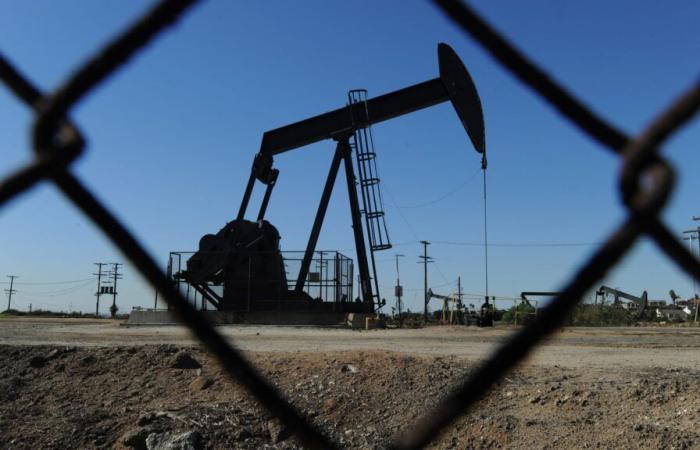The 2024 forecasts are revised downwards by 210,000 barrels per day compared to the assessment published in November, to reach an increase of 1.6 million barrels per day compared to 2023.
OPEC continues to bet on growth in oil demand in 2024 and 2025, but, again like last month, it revised it down compared to the previous month, according to its latest monthly report published on Wednesday. The world will consume 103.82 million barrels per day (mb/day) in 2024, after 102.21 million in 2023, indicates in this report the Organization of the Petroleum Exporting Countries, which revises its forecasts each month based on the situation.
For 2025, OPEC forecasts global consumption of 105.27 million barrels per day. In its previous estimate in November, the cartel of oil countries predicted global consumption of 104.03 mb/day and 105.57 mb/day next year. The forecasts for 2024 are thus revised downwards by 210,000 barrels per day compared to the assessment published in November, to achieve a growth of 1.6 million barrels per day compared to 2023. A “small adjustment” due ” mainly to update data for the first, second and third quarters of 2024,” indicates OPEC.
Uncertainty in Syria fuels prices
The increase in demand is mainly driven by countries that do not belong to the OECD. “Steady economic growth in China, supported by activity in India and other non-OECD countries should be the main drivers of growth in oil demand,” writes OPEC. Within OECD countries, “the American continent is expected to drive demand, supported somewhat by Europe while oil demand from Asia Pacific is expected to remain weak.” For 2025, the growth in global demand for black gold is also revised downward, by 90,000 barrels per day compared to the November assessment, to reach 1.45 million barrels per day.
At the beginning of December, OPEC and its allies, united in OPEC+, had overcome their differences by renewing their reductions in black gold production and by spreading out the timetable for their next cuts to avoid a price collapse. The announcement, largely expected by the market, had a very limited effect on oil prices. On the other hand, black gold prices have been fueled in recent days by uncertainty in Syria, since the fall of Bashar al-Assad. Syria is not a strategic country in oil production, but the unknowns about the future of the country and the entire region are raising concerns about the supply of crude, analysts point out.






